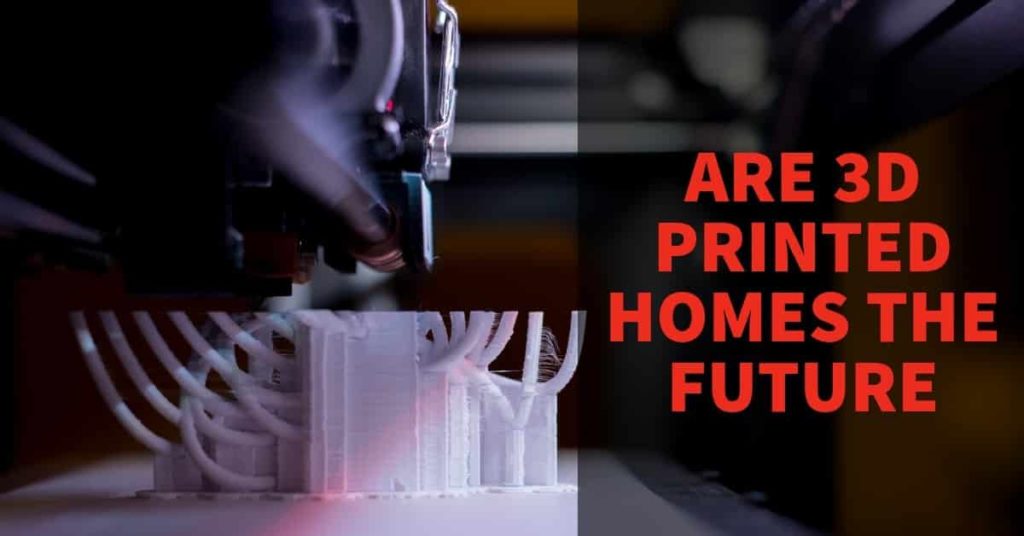The real estate industry has been around for centuries, providing people with a tangible asset and a place to call home. But in recent years, technology has changed the game. It’s transformed the way people buy, sell, rent, and manage properties.
Nowadays, you can’t imagine the industry without technology. It’s become a critical component, making things easier, faster, and more effective.
Think about it – technology has improved convenience, efficiency, and effectiveness in transactions. With just a few clicks, you can view a property from the comfort of your own home. Or even sign a contract online.
No more waiting in line or wasting time. Technology has made the real estate process more streamlined and convenient.
Here we’re going to dive into how technology has shaken up the real estate industry. We’ll look at everything from property search and listing to real estate transactions and property management.
We’ll also discuss the role of real estate agents in this new technological world. But it’s not all sunshine and rainbows. We’ll also explore the challenges that come with adopting technology in the industry.
By the end, you’ll have a better idea of how technology is transforming the industry. And what it means for the future. So buckle up, grab a cup of coffee, and let’s explore the brave new world of real estate tech together.
The impact of technology on the real estate industry
Technology has totally transformed the real estate industry, changing the way people buy, sell, and manage properties. Here are a few examples of how technology has impacted the industry.
Better communication and accessibility
Technology has made it easier for buyers, sellers, and agents to stay connected. With online messaging and video conferencing tools, you can communicate with anyone from anywhere in the world. This has made it simpler for people to connect and do business remotely.
Increased efficiency in transactions
Technology has made the real estate transaction process faster and more efficient. Electronic signatures and online transaction management systems have eliminated the need for paper documents and manual signatures. This has resulted in shorter transaction times and fewer mistakes.
Greater access to data and information
Technology has made it easier for real estate professionals to access data and information. With online listing platforms and property databases, agents and buyers can easily access property details, pricing history, and other relevant information. This has made it simpler for buyers to research properties and for agents to provide accurate market analysis.
Enhanced marketing and advertising
Technology has revolutionized the way properties are marketed and advertised. With online platforms and social media being used for digital marketing, agents can reach a wider audience and target specific demographics. This has resulted in more effective marketing campaigns and increased exposure for properties.

The role of technology in property search and listing
One cool thing about technology’s impact on the industry is how it’s changed the way we list and search properties. Let’s look at a few of the most significant changes.
Online listing platforms
When it comes to property listings, online platforms have become the norm. These sites offer detailed descriptions, photos, and pricing information. Additionally, they allow users to filter their search results by location, price, and property type.
Virtual tours
Want to see what a property looks like without leaving your house? Virtual tours make that possible! With this technology, buyers can get a realistic feel for a property before seeing it in person. This was especially valuable during the pandemic.
3D floor plans and modeling
With 3D floor plans and modeling, buyers see a detailed, accurate representation of a property’s layout, size, and dimensions. This technology has been especially useful for builders and developers who want to showcase their designs to potential buyers.
Mobile apps for property search and viewing
Nowadays, mobile apps have become a popular way to search for properties. These apps allow users to search for properties, view photos and videos, and contact agents directly from their smartphone or tablet. They can also receive push notifications when new properties that match their criteria are listed.
How technology is impacting transactions
Technology has completely transformed the way real estate transactions are conducted, making them faster, more efficient, and more secure. Let’s take a closer look at some of the specific ways technology has impacted real estate transactions.
Electronic signature and contracts
Electronic signatures and contracts have eliminated the need for paper documents and manual signatures. As a result, there are shorter transaction times and reduced errors. Buyers and sellers can sign documents from anywhere in the world, making transactions more accessible and convenient.
Online transaction management
Online transaction management systems provide a centralized platform for managing real estate transactions. This allows buyers, sellers, and agents to track the progress of a transaction, share documents, and communicate with each other. This makes for a more transparent and streamlined transaction.
Digital closing and settlement
Digital closing and settlement provides a more efficient and secure way to complete real estate transactions. All documents and funds are transferred electronically, eliminating the need for paper documents and manual checks. Due to this, faster and more secure transactions have become possible.
Blockchain and smart contracts
Smart contracts and blockchain provide an even more secure and transparent way to conduct real estate transactions. Blockchain technology provides a decentralized ledger that records all transaction details, making it nearly impossible to alter or falsify records. Smart contracts are self-executing contracts that automatically enforce the terms of the agreement. This is a more secure and efficient way to conduct real estate transactions.

Technology and property management
Technology has brought about significant changes in the real estate industry, and property management is no exception. Here are some examples.
Property management software
Property management software has made it easier for landlords and property managers to manage their properties. They can provide features like rent collection, tenant screening, and maintenance tracking.
Smart home technology
Smart home technology and automation has become increasingly popular in the real estate industry. Property owners are enabled to remotely control and monitor their properties. This technology has also become popular with tenants. They appreciate the convenience and security benefits of smart home technology.
Predictive maintenance and monitoring
Predictive maintenance and monitoring technology use sensors and algorithms to identify potential maintenance issues before they become a problem. This technology allows landlords and property managers to address maintenance issues before they become more serious. As a result, they’re able to save on costs and improve tenant satisfaction.
Energy management
With energy management technology, landlords and property managers are able to reduce energy consumption and improve sustainability. This results in financial savings and environmental benefits.
Technology and agents
Technology has also had a big impact on the way real estate agents do business. Here are some of the ways in which technology has changed things:
Customer relationship management
First, there’s customer relationship management (CRM) software. This kind of software lets real estate agents manage their contacts and keep track of their interactions with clients. It helps agents stay organized and keep up with their relationships with clients.
Chatbots and AI
Then there are chatbots and artificial intelligence (AI). These have become super popular in the real estate industry lately. With AI-powered chatbots, real estate agents can answer common questions and help clients with simple tasks like setting up appointments. That means they can offer 24/7 customer service and work more efficiently.
Data analytics and predictive modeling
Another big change is data analytics and predictive modeling. These tools let real estate agents analyze market trends and predict what might happen in the future. This helps them make better decisions and give their clients more valuable insights.
Social media marketing
Finally, social media has become a big deal for real estate agents. Platforms like Facebook, Instagram, and LinkedIn let agents reach a wider audience and promote their listings. Social media ads also help agents target specific groups of people and get more visibility.
The challenges of adopting technology
While technology has provided many benefits to the real estate industry, there are also challenges associated with technology adoption. Here are some of the challenges:
Resistance to change
The real estate industry has been slow to adopt new technologies, with some professionals resistant to change. This can make it difficult for new technologies to be adopted industry-wide.
Data privacy and security concerns
With the increased use of technology in real estate transactions, there are concerns around data privacy and security. Real estate professionals must ensure that sensitive client data is protected and secure.
Digital divide and access to technology
The digital divide can create a barrier to technology adoption in real estate. This is where some individuals and communities have limited access to technology. It can lead to unequal access to information and opportunities.
Legal and regulatory challenges
The use of technology in real estate transactions may raise legal and regulatory challenges. Real estate professionals must ensure that they comply with laws and regulations. Data privacy and fair housing are just a couple of examples, but there are others.

The future of technology in real estate
As technology advances, it’s clear that the real estate industry will continue to be impacted. So, what should we consider when thinking about the future of technology in real estate?
Firstly, there are some emerging technologies to keep an eye on, such as artificial intelligence, virtual reality, and blockchain. These technologies could change the way real estate transactions are conducted, making it easier and more efficient for everyone involved.
But with technology comes the potential for disruptions and innovations. Take online real estate listing platforms, for example. They’ve disrupted the traditional role of real estate agents in property search and listing. In the future, we can expect more changes and innovations that will shape the industry in ways we can’t yet predict.
Despite all these changes, real estate professionals will still play an important role. While some aspects of their job may change, they will continue to provide valuable expertise and guidance to clients.
Overall, the future of technology in real estate is looking bright. Emerging technologies have the potential to bring significant benefits to the industry and create new opportunities for real estate professionals. However, it’s important to keep in mind the potential challenges and disruptions associated with technology adoption.
In conclusion
In a nutshell, technology has revolutionized the real estate industry, from property search and listing to transactions and property management. Real estate professionals who are open to adopting technology are more likely to grow and succeed in today’s competitive market.
The use of technology in real estate has brought about better communication and accessibility. Additionally, it’s improved transaction efficiency, greater access to data and information, and enhanced marketing and advertising. Agents who have embraced real estate technology trends have gained a competitive edge and improved their overall customer experience.
However, there are challenges that come with technology adoption. Like resistance to change, data privacy and security concerns, the digital divide, and legal and regulatory issues. These challenges need to be considered and addressed carefully.
Looking ahead, emerging technologies such as artificial intelligence, virtual reality, and blockchain are the future of real estate. It is crucial for real estate professionals to keep themselves informed about these technologies. In addition, they should be open to real estate innovation in order to stay ahead of the competition.
At 1 Percent Lists, we know that real estate professionals who embrace technology and adapt to the changing landscape of the industry will be better positioned for success. By integrating technology into their business models and processes, they can provide a better customer experience and stay competitive in a fast-paced market.





